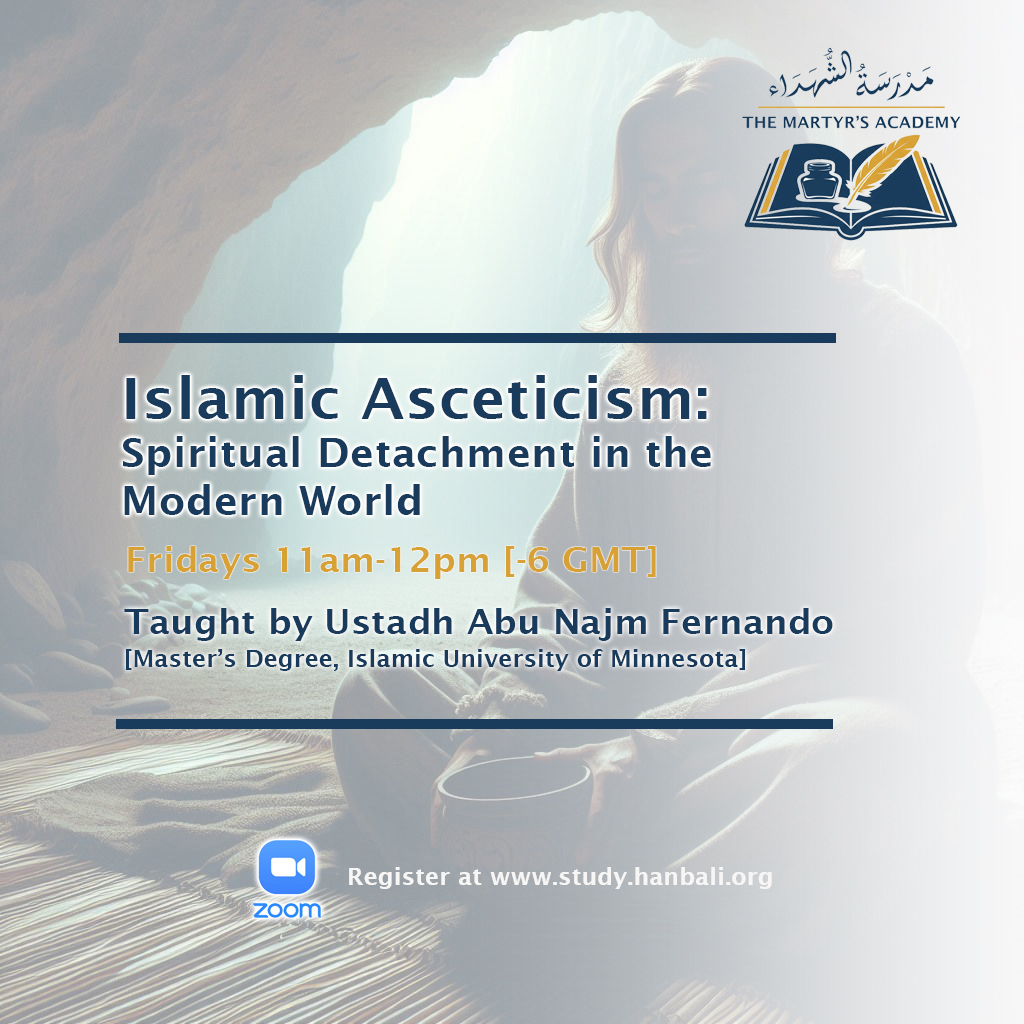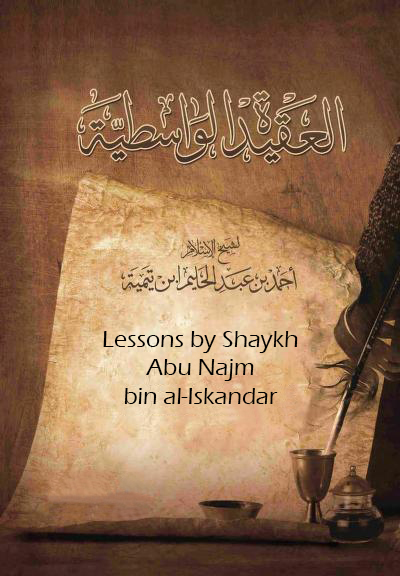Here is a link to download a PDF for the preferred English-language explanation of Arabic grammar:
Baraak Allahu feekum
Here is a link to download a PDF for the preferred English-language explanation of Arabic grammar:
Baraak Allahu feekum

Course Description: Contemporary Islamic Asceticism (Zuhd) – A Study Based on Classical Texts
Course Title: Contemporary Islamic Asceticism (Zuhd): Spiritual Detachment in the Modern World
Primary Texts: Kitab az-Zuhd by Imam Ahmad ibn Hanbal and Az-Zuhd wa ar-Riqa’iq by Ibn al-Mubarak
Instructor: Ustadh Abu Najm Fernando
Duration: Ongoing
Format: Lectures, Seminars, Textual Analysis
Course Overview:
This course explores the concept of Zuhd (asceticism) in Islam, examining its theological foundations, practical applications, and relevance in the contemporary world. Drawing from two foundational works—Kitab az-Zuhd by Imam Ahmad ibn Hanbal and Az-Zuhd wa ar-Riqa’iq by Ibn al-Mubarak—students will engage with early Islamic teachings on detachment from worldly matters while maintaining productive and selective societal engagement. The course bridges classical scholarship with modern challenges, addressing how Zuhd can be practiced today without falling into extremes of indulgence or neglect of Islamic responsibilities.
Course Objectives:
1. Define Islamic Asceticism: Understand Zuhd as a balanced spiritual discipline, far removed from monasticism or materialism.
2. Textual Analysis: Study key narrations from Kitab az-Zuhd and az-Zuhd wa ar-Riqa’iq, focusing on the sayings of the Prophet (ﷺ), Companions, and Salaf.
3. Historical Context: Examine how Zuhd was practiced in early Islam and its role in personal piety and setting positive examples for society.
4. Modern Applications: Discuss how Zuhd can be applied today in areas such as wealth, consumption, technology, and ethical living.
5. Critique Extremes: Analyze deviations from balanced Zuhd, including excessive renunciation or materialism.
6. Spiritual Development: Explore Zuhd as a means of purifying the heart (Tazkiyah) and strengthening complete reliance on Allah (Tawakkul).
Key Themes:
- The Prophetic Model: How Prophets and the Salaf embodied Zuhd.
- Wealth & Contentment: Differentiating between lawful enjoyment and greed.
- Minimalism vs. Asceticism: Modern minimalism in light of Islamic Zuhd.
- Societal Responsibility: Zuhd as a motivator for understanding justice and establishing Islamic mores.
- Psychological Benefits: Detachment as a tool for reducing anxiety and attachment to materialism.
Course Structure:
1. Foundations of Zuhd: Definitions, scriptural basis, and early Islamic examples.
2. Textual Studies: Selected readings from Kitab az-Zuhd and Az-Zuhd wa ar-Riqa’iq.
3. Comparative Analysis: Zuhd in Sufism, Salafism, and modern Islamic thought.
4. Contemporary Challenges: Zuhd in the age of consumerism and digital distractions.
5. Practical Workshops: Applying Zuhd in daily life, finance, and worship.
Assessment Methods:
This course offers a transformative journey through classical and contemporary Islamic spirituality, equipping students with the intellectual and practical tools to cultivate Zuhd as a means of drawing closer to Allah in an increasingly materialistic world.

A study of Ibn Taymiyyah's al-`Aqīdat al-Wāsiṭiyyah.
‘Ijāzah upon completion.